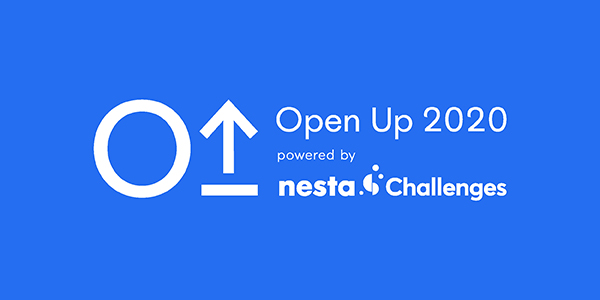
QS Quacquarelli Symonds is on a mission to empower students anywhere in the world to fulfil their potential. It does this via a broad range of services for higher education institutions, ranging from rankings and ratings analysis to student recruitment, conversion and retention services. Launched in 2004, its QS World University Rankings portfolio, has grown to become the world’s most popular source of comparative data on university performance. The company also runs industry conferences and digital events, offers higher education consulting services, and delivers software and services for enrolment, admissions, partnerships and more.
Business challenge
Spreadsheet-based financial tracking and planning meant limited visibility into financial performance and too much time spent on manual tasks.
Deployment
ICit worked hand-in-hand with QS to roll out Workday Adaptive Planning across a complex business, starting with personnel and revenue management, and with modelling and planning to come.
Business benefits
- Enhanced productivity for the finance team
- Improved visibility of headcount costs across a complex business
- Real-time forecasting, planning and better decision-making
- Improved security via roles-based access controls
Business challenge story
Scores of spreadsheets
Keeley Barnes is the financial planning and analysis director for QS, where she manages a small team with a big responsibility at a company of around 650 employees. Those workers are the lifeblood of the organisation and the biggest cost in what is primarily a services-led business. That’s why QS was first and foremost looking for a better way to gain visibility into and control over headcount cost. The old way of doing things, via manually updated spreadsheets, was no longer sustainable.
“We would have around 50 spreadsheets so trying to maintain consistency and consolidate the data so that at any one point in time I knew where I stood, was really difficult,” Keeley explains. “There were so many different spreadsheet versions and I had to wait until each owner sent the latest version of each spreadsheet. Getting an instant, centralised view, and the ability to make real-time changes just weren’t possible.”
These problems were exacerbated by the complex way QS is structured, with each business area operating in each subsidiary.
“Keeping on top of different tax rates and potential inflationary increases, varying bonus packages, exchange rates and other differentials was extremely difficult with a spreadsheet-based system. It was hard to maintain consistency across the board,” she explains.
Transformation story
A collaborative approach to problem solving
QS therefore invested in Workday Adaptive Planning to enhance financial and business decision making, and the productivity of its employees. ICit’s collaborative approach to problem-solving was instrumental to ensuring a smooth rollout.
“From an ICit perspective you can tell they are a tight-knit group that ultimately want to deliver. They understand your challenges and don’t want to disappoint,” she adds. “Both of the contacts I worked with had very different approaches but they ultimately both wanted to come up with a solution, no matter what it was, and they relished that.”
As the project continued, the team have required less input from ICit’s experts, but will still approach them for insider know-how on the product from time-to-time.
So far, QS has rolled-out level-assigned sheets allocated to specific roles in the business, in order to better manage personnel costs. The tool enabled the team to seamlessly build-in various assumptions around taxes and inflationary increases on the back end. They’ve also started on revenue management, a key task in an organisation where multiple revenue models exist—from digital subscriptions to enrolment services, and the point-in-time approach required for the QS events and conference business.
The eventual aim is to feed all the relevant sheets into Workday’s Planning Platform technology for seamless modelling, and to integrate with the firm’s NetSuite platform for automated revenue management.
Results story
An immediate impact
Keeley admits that finance teams are always sceptical of change, and hers was no different when ICit first introduced the Workday solution. It has taken time to reassure them that the figures running in the platform are accurate and aligned with their traditional spreadsheet view. However, the impact for QS has been immediate—delivering instant real-time visibility into financial performance.
“From a finance perspective, there will always be some Excel in your environment. However, I think that once the templates are set-up, being able to download the information from Workday will mean a much quicker turnaround for the team in terms of output, and they will see those benefits,” she explains. “From a consolidation perspective I already get a much better and well-rounded view of things throughout the process, rather than only at the end.”
The implementation has also enhanced security for QS, thanks to roles-based access controls which allow the finance team to set restrictions on who can access what. Internally in the finance function the same capabilities are available to minimise privacy and data protection risk, she explains. Even better, the finance function will play a more central role in the future direction of the company.
“Getting access to that financial data in real-time will allow the team to play a more strategic role in the business. The idea is that they can build out three and five-year plans in a far easier and more time-efficient manner,” says Barnes. “When COVID happened we went through four budget planning and forecasting scenarios, and we were doing that via spreadsheets. If we’d had Workday it would have made life so much easier. We’ll now do spot check forecasts and ‘temperature checks’ throughout the year because we can with Workday.”
Although the platform is initially only being used by finance team members, the plan is to roll it out to the wider business to enhance self-sufficiency and visibility into budgeting and planning. As this kind of predictive modelling becomes second nature to QS, the hope is that it will create a more productive, efficient, and high-performance organisation.
Ready to find out more?
We have helped many businesses around the UK implement a range of Financial Planning & Accounting features, that are offered by Workday Adaptive Planning.
Our team of specialist Workday Consultants can discuss your exact business needs, advise you on how to implement Workday Adaptive Planning within your finance practices and also offer training to those staff who will be using the software day-to-day.
Get in touch today
To find out more about the benefits of Workday Adaptive Planning, or ask any specific questions about how it could improve your current financial software options, please get in touch with us today. info@icitbi.com









